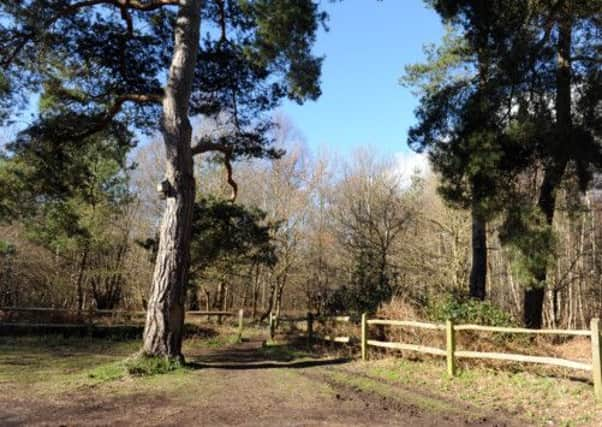THE INTERVIEW: ‘Hidden history’ of West Chiltington revealed by Polish soldier that escaped Stalin’s gulags


Hearing the tales of those who bore witness to the horrors of the second world war is a humbling experience.
Tadeusz Dudzicki was just 14 when the Stalin regime ‘disappeared’ his father and deported the teenage son from his native Poland to build a new railway in Kazakhstan.
Advertisement
Hide AdAdvertisement
Hide AdDisplaced, malnourished and set to work in the harshest of conditions, it would be eight years until the young Pole experienced one of the best summers of his life in West Chiltington.
“It was something beautiful,” recollected Mr Dudzicki, “the smell of the flowers, roses, trees, and greenery everywhere – I tell you it was one of the best summers.”
Now living in Kent, the 85 year old retired architect’s memories were stirred when he received a clipping of an article, first published in this paper, inside a card at Easter.
It concerned the ‘hidden history’ of a displaced persons camp at Monkmead Woods in West Chiltington, and the article included an image of an old pine tree still standing proud more than 60 years later.
Advertisement
Hide AdAdvertisement
Hide Ad“I think my God, I remember that tree,” recounted Mr Dudzicki, his rich baritone staying steadfastly Polish in character, each letter ‘r’ rolled in the Slavic tradition.
“When I look at the tree I straight away knew, that’s it, that’s it, about ten paces to the right was our nissen hut where I slept.”
First published in February this year, the article Mr Dudzicki held in his hand centred around the quest of a woman called Simone Kaptur from Worthing who was seeking information about the West Chiltington camp.
She hoped it would help her to better understand her deceased father, who was also a Pole displaced by the war.
Advertisement
Hide AdAdvertisement
Hide AdMr Dudzicki was pleased to share his experiences from the time, and talk of the camp’s history first as a Polish school in 1947, and then as an army camp for a section of the exiled Polish Army.
“It’s terrific I tell you - for old people stirring the memory back to youth is wonderful.
“I came to this camp in 1948 but in 1947 the camp was already used by Polish First Panzer Division and also by children who were fighting in the underground movement in Poland, but were later transferred to German camps and rescued by Polish Army, the Americans and General Montgomery.”
Some ‘real characters’ were amongst the resistance boy and girls who first came to the village, said Mr Dudzicki.
Advertisement
Hide AdAdvertisement
Hide AdSoon after, his family was also resident in the area, his father having since escaped the grip of Stalin’s gulags now worked as a doctor in the camp while his mother and sister nursed at a large hospital in Barns Lane, Storrington.
At the time Mr Dudzicki had signed a two year contract with the Polish Army and was billeted to the West Chiltington camp which covered a large area, around Monkmead Woods.
“It was something beautiful,” he continued. “On the way coming from Roundabout Hotel to West Chiltington there were beautiful houses on the left hand side.
“One with crooked windows we always called it Donald Duck House because it looked like it was from a film.
“You could see people working in the garden.
Advertisement
Hide AdAdvertisement
Hide Ad“It was the first time I saw people cutting grass because nobody cut grass in Egypt or Iraq because there wasn’t any grass.
“It was so surprising after living by Suez and in Palestine where it was all bleak and hot, we came over here and it was such a beautiful country.”
Importantly, aside from the rationing, ‘it was normal life’ for Mr Dudzicki - something he had longed for ever since he had been cast from his homeland at the beginning of the war.
The article also elicited less pleasant memories from his past too though, aged 14.
Advertisement
Hide AdAdvertisement
Hide Ad“Really I was working from the day the bloody Russians came for me.
“I couldn’t stop without them killing me.
“It was awful, awful awful.”
He reflected on being a displaced person unable to return to his homeland now subsumed into the Soviet Union.
“When I took my British nationality papers, the question was asked ‘Why do you want to be British?’
“I said because I want to belong.
“I want to take part in normal life.”
Mr Dudzicki’s time in West Chiltingon played an important part in the creation of his normal, yet extraordinary, life.